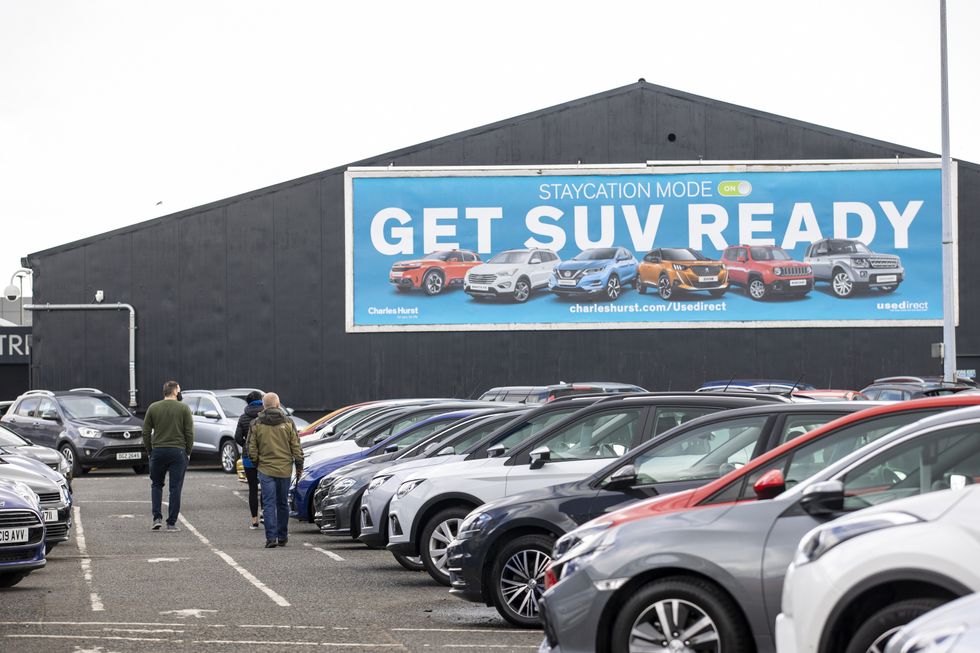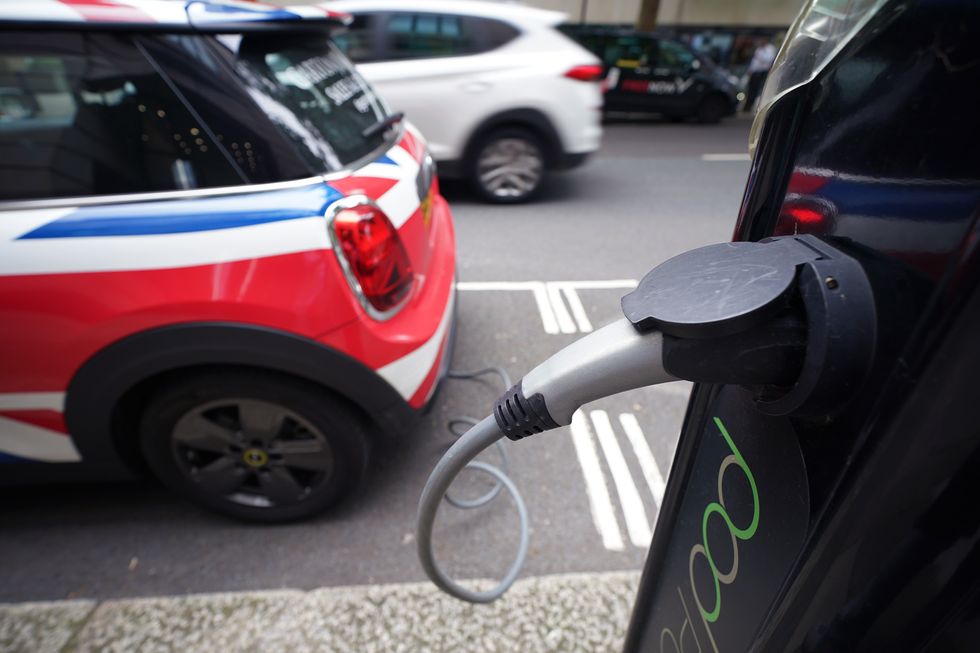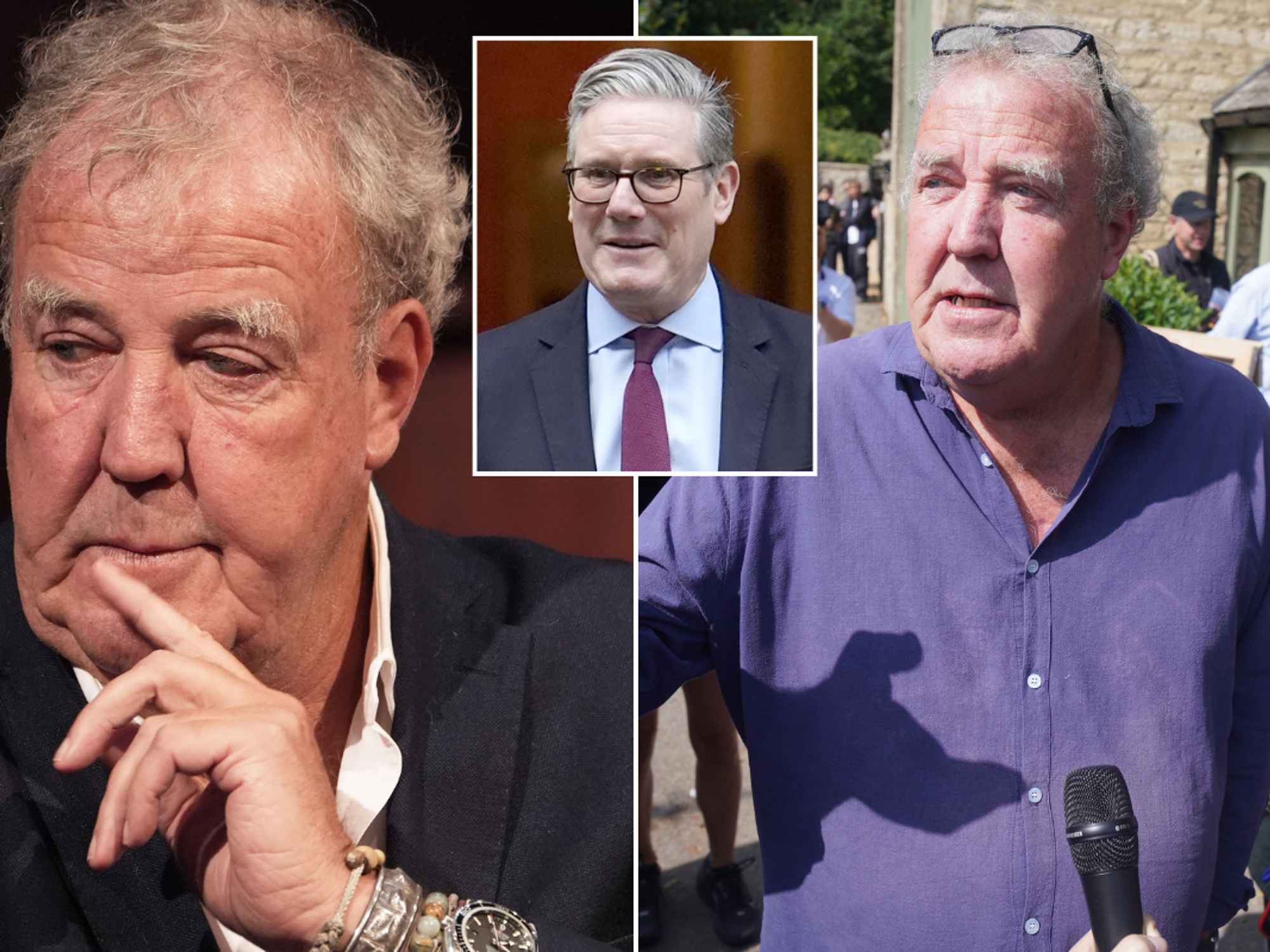Petrol and diesel car sales will 'start falling quite quickly' as drivers face spike in vehicle prices

Decisions are still being made as to whether the Government will reinstate the original 2030 deadline to ban new petrol and diesel car sales
Don't Miss
Most Read
Millions of drivers believe that petrol and diesel cars will be harder to buy by the end of the decade as manufacturers switch to electric.
A new survey has found that 84 per cent of motorists think second-hand petrol and diesel cars will soon become harder as a result of the Government's plans to phase vehicles out.
The deadline to ban the sale of new vehicles with internal combustion engines is 2035, although Labour has plans to reinstate the original 2030 deadline.
A Government spokesperson has told GB News that Labour would make an announcement "in due course", although this may not include plug-in hybrid vehicles.
Do you have a story you'd like to share? Get in touch by emailing motoring@gbnews.uk
 Petrol and diesel car sales are likely to fall over the coming years | PA
Petrol and diesel car sales are likely to fall over the coming years | PAAccording to new research from the October Used Car Tracker, 73 per cent of Britons expect used petrol or diesel cars to become more expensive as a result of production deadlines.
Meanwhile, two-thirds of people say they will hang on to their existing petrol or diesel car for a longer period of time because of the measures.
The Zero Emission Vehicle mandate was rolled out at the start of this year to ensure manufacturers meet minimum sales targets for electric vehicles.
By the end of the year, major manufacturers are required to have 22 per cent of sales come from zero emission vehicles.
This target will continually rise, reaching 80 per cent by the end of the decade and 100 per cent by 2035, when new sales of petrol and diesel vehicles will be banned.
Commenting on the new data, Paul Burgess, CEO of Startling Motor Finance, said: "The petrol and diesel car production deadline has been something of a political football.
"Boris Johnson introduced it for 2030, Rishi Sunak pushed it out to 2035 and Keir Starmer is set to bring it back to 2030 again. While it is grabbing headlines, the fact is that it is something of a symbolic measure."
He noted how ZEV mandate would help boost the number of electric vehicles on the road almost immediately, especially as manufacturers bring out more models and slash their prices.
Burgess added: "The supply of petrol and diesel cars into the used market is going to start falling quite quickly and this could lead to a situation where demand drives up prices.
"Certainly, it is very much possible to envisage a situation where later in the decade, electric cars are cheaper than comparable petrol or diesel models."
He suggested that the Government should ensure drivers have adequate access to cheap electric vehicles so that no one is left behind in the net zero transition.
The expert called for a widespread rollout of EV charging points on streets for those who live in an apartment or terraced house where they cannot charge on their driveways.
LATEST DEVELOPMENTS:

Experts have called for more EV chargers to be installed for those without driveways
| PAAccording to the Zapmap database, there are 68,273 public EV chargers around the UK, with more than 101,000 connectors.
This is a 41 per cent increase year-on-year, with almost 20,000 devices installed since August last year.










